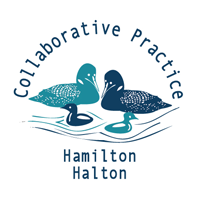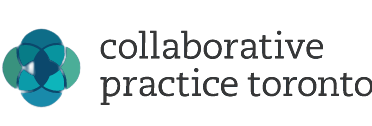The Collaborative Process
A Full Team Approach
Collaborative Family Law
The Collaborative process is one in which the parties and their lawyers commit to coming to an agreement without going to court, to making full, transparent disclosure, and to negotiating respectfully with each other.
Collaborative family lawyers, financial professionals and family professionals must be specially trained in this unique area.
The goal as in any traditional negotiation is an enforceable Agreement, whether it is a Separation Agreement, a Marriage Contract, a Cohabitation Agreement or a Parenting Agreement. In the Collaborative process the goal is also that any agreement the parties sign is balanced and is created in a process that takes into account their individual interests and concerns.
The Team Approach
All parties to any family matter must be fully informed before making any decisions that will affect their children or their financial future. It is often a lack of information that prevents a party from moving forward to come to an agreement.
In a traditional negotiation, or in a litigation process, it is common for each party to work with an expert who will provide an opinion on such things as the value of a house or a business, or stock options, or the parenting arrangement that would be in the children’s best interests. At the end of the day it is not uncommon for parties and their lawyers to be left with two different expert opinions. In a Collaborative process we use neutral experts, selected by both parties with the help of their lawyers.
Family professionals assist with the issues that would help create a strong parenting plan – communication protocols, working through schedules and the many parenting issues that arise when parents separate.
Financial professionals help provide neutral financial information, including information on optimizing tax savings for the family, valuation of assets, and projections and plans to help each party reach their financial goals.
While the “team approach” may sound expensive our experience is that clients actually save money by outsourcing the “non-legal” services to the professionals who have expertise in these areas and who often charge less than the lawyers.
The Collaborative Process
Once the parties have chosen the Collaborative process they will sign a Participation Agreement, and so will their lawyers.
We will have an initial meeting where parties will outline their goals and any concerns they may have, as well as any urgent issues that need to be addressed. We will go over the disclosure we would need so that everyone can make an informed decision. We talk about whether the process would benefit from a family professional and/or a financial professional.
We create timelines for disclosure and the lawyers send confirming notes to all parties.
When the next meeting takes place we review the “homework” that lawyers and parties have done and we move on from there.
The lawyers do not send letters back and forth with proposals or ultimatums. The lawyers talk to each other. Almost all of the work is done with the participation of the people who will be signing the resulting Agreement, and almost always in meetings with all parties and lawyers present. For this reason, clients who choose this process are rarely surprised when they receive a bill for legal fees – almost all of the work is accomplished with the clients present and participating.
Marian Gage is an active member of the Peel Halton Collaborative Practice Group.
For more information on the Collaborative process, and for a list of Collaborative professionals who work in this area, please see the following links:



